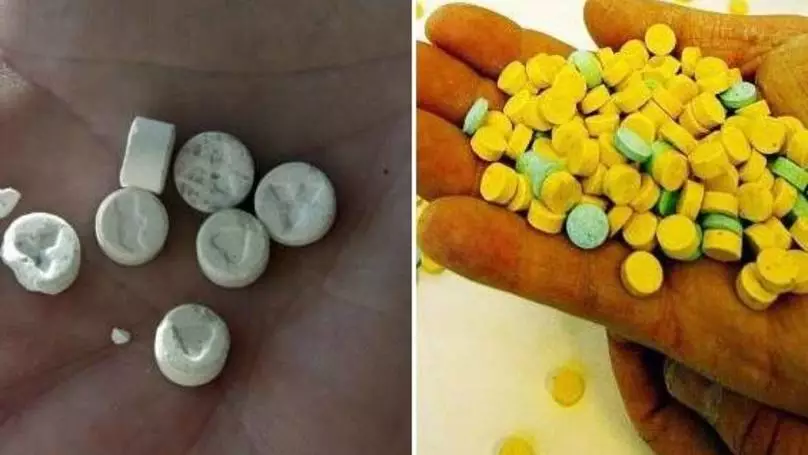
If you've taken MDMA you'll know that there is nothing like it. Sure, it loses its magic if you take it too much and reach the realisation that it turns people into loved-up, gurning zombies. But the feeling of your first experience - thinking that it's made you feel and say things you've always wanted to say but somehow been unable to; the inexpressible sense of real love - stays with you.
A study, published in the Journal of Psychopharmacology, analysed how the drug affects users and how they talk about people in their life. The study showed evidence of 'prosocial effects' of the drug that anyone who's taken it will already be aware of.
Researchers found that people spoke in greater depth about their relationships and offered more details about intimate topics while under the influence of the drug known also by the scientific name 3,4-methylenedioxymethamphetamine.
"With MDMA, you get these really increased feelings of sociability and closeness with others," Matthew Kirkpatrick, a professor of preventative medicine at the University of Southern California and one of the study's authors, told The Huffington Post. "When you're on MDMA, you tend to focus on positive social-emotional stimuli, and you're less reactive to negative emotional stimuli, such as fearful or angry faces."
In short, researchers discovered all that shit you say about how much you love your mates, what you want to do with your life and how great the DJ is. They also felt that the drug could be used practically as part of couple's therapy, as it has been used in the past.
Credit: National Geographic
Advert
In the study, 35 healthy participants - all of whom had previously used MDMA - completed two sessions with a research assistant. During the sessions, participants were given MDMA and during another, a placebo. Researchers then asked the participants to talk about a close relationship.
The conversations were then analysed for use of lexicon related to emotions, cognition and socialising. Researchers found that MDMA prompted increased use of social and sexual words, along with words relating to positive and negative emotions. The participants using MDMA also spoke more than usual about the future and death, likely because they were thinking introspectively.
"On a psychological level, our volunteers felt more insightful and confident about their feelings while on MDMA," the study's lead author, Dr. Matthew Baggott, a data scientist and neuroscientist at the University of Chicago, said. "This seemed like a different, more unusual type of drug effect than simply being talkative and feeling good."
Psychologists have also found that the drug has potential as a treatment for anxiety associated with life-threatening illness, social anxiety and post-traumatic stress disorder. It's also been credited with helping to end the culture of British football hooliganism in the 80s, with supporters finding it harder to batter opposition fans they'd been raving with the night before.
But the main problem with using it in treatment going forward is the fact it's a class-A drug, with possession and supply both illegal.
"There's a huge political component to MDMA," Professor Kirkpatrick said. "Something needs to change politically where MDMA can be seen as a safe and viable therapy under the proper settings."
Ultimately, although MDMA has been shown to have potential uses and benefits in psychotherapy, it's unlikely it will be prescribed by your GP any time soon.
Advert
Featured image credit: PA Images